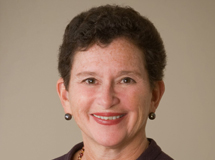 |
| www.syr.edu |
In terms of the public relations impact of her
departure, I see a long road ahead in effectively maintaining relationships
with the university's stakeholders. The
difficulty lies in Chancellor Cantor's "Scholarship In Action"
programs; these new initiatives of engaged learning have created a multitude of
new stakeholders who are now strongly tied to the university. Prior to Chancellor Cantor's reign, these individuals
or groups may not even have existed as stakeholders. For example, the Imagining America
program at Syracuse did not move to campus until 2007. Today, there are eleven graduate students
whose studies are paid for in part by this program, in addition to three
full-time employees running the program and student work studies managing the
office. All of these individuals now
have stake in not just the university, but in Chancellor Cantor's initiatives
and her leadership. This may seem like a
small group, but there are countless groups like this across the university,
and all will want a voice during this time of transition.
I will
let the hallways and classrooms of Syracuse work out whether Cantor's departure
is for the best or the worse, but regardless, from a public relations
perspective, the university is in quite a pickle. Due to the growing criticism of Cantor's
work, should the university start from scratch, and leave behind many of her
initiatives? Or, due to the influx of stakeholders who now have brand-new or
stronger ties to the university, should it continue Cantor's initiatives in the
interest of maintaining good relations? Either
way, the university will need to proceed with transparency (some would argue a
new concept for Cantor's Syracuse...), two-way dialogue and respect for all
stakeholders involved. If public
relations is not at the table during the important decision-making processes of
this transition, it is unlikely the university will come out of this time
unscathed.
No comments:
Post a Comment